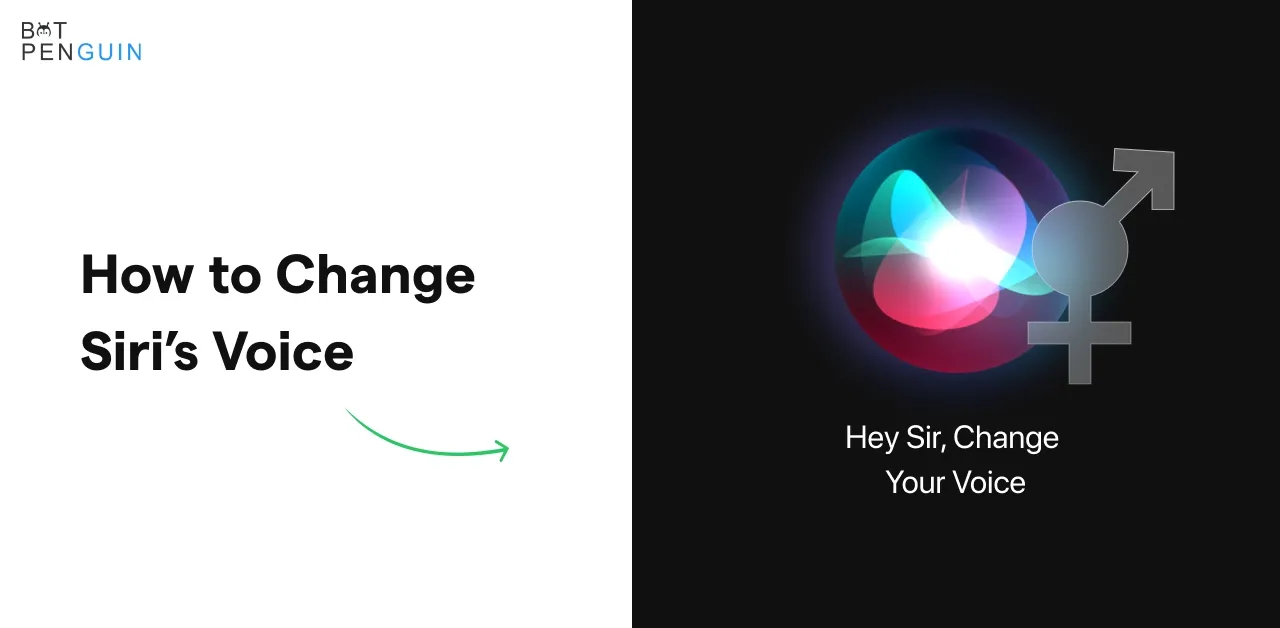Introduction
In today's hyper-connected world, customer satisfaction is more vital than ever. Businesses should not only meet but exceed customer expectations, and what better way to do it than with a Cloud Contact Center? Picture a service platform where real-time data, seamless communication, and exceptional customer service converge; that's precisely what a Cloud Contact Center offers.
It's a powerful tool that can substantially increase your customer satisfaction, all at the click of a button. This blog post will explore how moving your contact center to the cloud can transform the customer experience you offer. From fostering meaningful communications to providing prompt resolutions, Cloud Contact Centers can be real game changers.
What is a Cloud Contact Center?
A Cloud Contact Center is essentially a modern version of the traditional call center but hosted on cloud technology. Imagine your typical customer service center, with all its capabilities for handling calls, emails, and chats but rather than being confined to a physical space, it thrives in the flexible and expansive environment of the cloud.
This setup allows agents and teams to connect with customers from virtually anywhere, providing great agility and scalability. The beauty of the cloud is that it can seamlessly integrate with other platforms and services, improving operational efficiency and productivity. Plus, it provides data security and business continuity benefits that are critical in today's digital age.
In a nutshell, a Cloud Contact Center elevates customer service to new heights, ensuring businesses deliver top-notch, uninterrupted service all the time.
Key Components of Cloud Contact Center
A Cloud Contact Center comprises several key components working harmoniously to deliver top-notch customer service. These include:
Omnichannel Communication: Say goodbye to the days of juggling multiple communication platforms. With a Cloud Contact Center, you can seamlessly manage customer interactions across different channels, ensuring a consistent and unified experience.
Intelligent Routing: No more being stuck in a never-ending phone queue! Intelligent routing algorithms direct customer inquiries to the most suitable agent, ensuring swift resolution and minimizing wait times.
Customer Data Integration: Imagine having a crystal ball that shows you everything you need to know about your customers. A Cloud Contact Center can integrate customer data from various sources, providing agents with valuable insights and enabling personalized service.
How Does a Cloud Contact Center Work?
A Cloud Contact Center is a centralized hub where all customer interactions across multiple channels take place. Since it's hosted on the cloud, it overcomes the limitations of a traditional contact center by offering more flexibility, scalability, and advanced features.
Infrastructure and Setup
Cloud Contact Centers are built on world-class cloud infrastructures, eliminating the need for on-premise servers. It is usually serviced through an internet connection, and all you need is a device that can connect to the web.
Channels of Communication
A Cloud Contact Center supports an array of communication channels to interact with customers including voice, email, chat, and social media platforms. This multichannel approach ensures customers can easily reach out on their preferred platform.
Incorporating AI (Artificial Intelligence)
Many Cloud Contact Centers use AI to improve service delivery. It could range from using AI algorithms to route customer queries to the right agent, to deploying chatbots for instant customer interaction.
Analytics and Reporting
Cloud Contact Centers also come with powerful analytics and reporting tools. These features help businesses understand customer behavior and preferences, measure agent performance, and identify areas where they can improve their service delivery.
How Does a Cloud Contact Center Improve Customer Satisfaction?
Let's find out the various ways in which the adoption of a cloud-based contact center solution enhances customer experiences, streamlines communication channels, and empowers businesses to deliver exceptional service.
Minimal Downtime
Cloud contact centers have high uptime and minimal service disruptions, ensuring that customers can reach support agents whenever they need assistance. This reliability contributes strongly to customer satisfaction.
Faster Response Times
With the ability to effectively distribute calls to available agents and intelligent call routing, cloud contact centers help reduce response times, leading to quicker resolution of customer issues.
Flexible Scalability
Cloud contact centers allow businesses to expand or contract their customer support staff as needed, ensuring the right number of agents are always present to handle customer inquiries, even during peak times.
Omnichannel Support
Cloud contact centers enable omni-channel customer support, allowing agents to communicate with customers across multiple channels, like email, chat, social media, and phone calls. This creates a seamless customer experience and helps address issues more efficiently.
Remote Work Capability
Cloud contact centers allow agents to work remotely, which means businesses can recruit talent from different locations and maintain operational efficiency. This flexibility ensures customers receive prompt assistance from skilled professionals.
Enhanced Agent Collaboration
Cloud-based tools empower agents to collaborate easily, facilitating more effective assistance and quicker resolution of customer issues. Agents can transfer calls, provide real-time support, and share information through an integrated platform.
Improved Call Routing
Intelligent call routing directs calls to the most appropriate agents, ensuring customers reach the individuals who can best address their concerns. Additionally, it supports a multilingual feature that helps to route calls based on the customer's language preferences.
Advanced Analytics
Cloud contact centers provide advanced analytics, enabling businesses to identify trends and improve customer support. By analyzing data collected from customer interactions, businesses can make strategic decisions to enhance service quality and customer satisfaction.
Integration Capabilities
Cloud contact centers connect seamlessly with existing CRM systems, providing agents with comprehensive customer information and history. This enables personalized service, ensuring interactions are tailored to the specific needs and preferences of each customer.
Cost Efficiency
While not directly impacting customer experience, the lower costs of cloud contact center deployment often translate to better quality support, as companies can invest in advanced technological tools and skilled staff. These factors ultimately contribute to higher customer satisfaction.
Benefits of Implementing a Cloud Contact Center
In this section, we uncover the advantages that businesses gain by transitioning to a cloud-based contact center solution.
Unmatched Flexibility
Cloud Contact Centers allow businesses to easily scale up or down based on demand, providing the much-needed flexibility to adapt to market changes or business growth.
Seamless Remote Work Capabilities
With data and services hosted in the cloud, customer service agents can operate from anywhere in the world. This paves the way for seamless remote work, thereby providing a solution for unforeseen circumstances that may disrupt a traditional contact center setup.
Cost-Effective Operations
By transitioning to a Cloud Contact Center, businesses can minimize significant upfront investment in physical infrastructure and reduce maintenance costs, making it a cost-effective option.
Advanced Innovation and Integration
Cloud Contact Centers offer innovative features such as AI-powered customer interaction tools. Plus, they can seamlessly integrate with various business tools and CRM platforms, resulting in improved customer management.
Robust Data Security
A major benefit of Cloud Contact Centers is robust data security measures, including data encryption and backup services, which protect critical business information and keep data safe from potential threats.
Conclusion
In conclusion, using a Cloud Contact Center is a game-changer for elevating customer satisfaction. Offering flexibility, scalability, and cost-efficiency, it ensures customers receive timely and personalized service. But to further boost this scenario, integrating a chatbot can optimize your contact center operations. An AI-powered platform like BotPenguin can be your perfect partner in this.
BotPenguin lets businesses create chatbots easily, which automate repetitive tasks and engage with customers efficiently in real-time. These chatbots take customer interactions to new heights. Pairing your Cloud Contact Center with BotPenguin's chatbots not only enhances customer satisfaction but also transforms your overall business operations.
Frequently Asked Questions
Can a cloud contact center handle high call volumes effectively?
Yes, a cloud contact center can handle high call volumes efficiently by leveraging scalability and on-demand resources, ensuring minimal wait times, and enabling businesses to adapt quickly during peak periods.
How does a cloud contact center enable seamless omnichannel experiences?
By integrating multiple communication channels, such as voice, email, chat, and social media, into a unified platform, a cloud contact center enables agents to provide consistent and personalized experiences across channels, enhancing customer satisfaction.
Does a cloud contact center provide real-time customer insights?
Yes, a cloud contact center offers real-time analytics and reporting, providing businesses with valuable insights into customer interactions, agent performance, and customer sentiment, allowing for data-driven improvements and proactive customer service.
What are the cost benefits of implementing a cloud contact center?
A cloud contact center eliminates the need for on-premises infrastructure, reduces upfront investments, offers flexible pricing models, and reduces maintenance costs, providing businesses with cost savings and a higher return on investment.
Can a cloud contact center integrate with existing customer relationship management (CRM) systems?
Yes, a cloud contact center can integrate seamlessly with existing CRM systems, enabling businesses to have a unified view of customer interactions, history, and preferences, resulting in more personalized and satisfying customer experiences.



